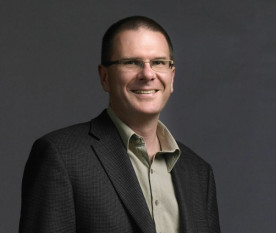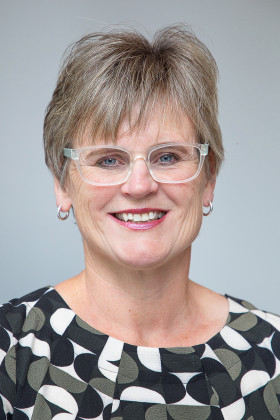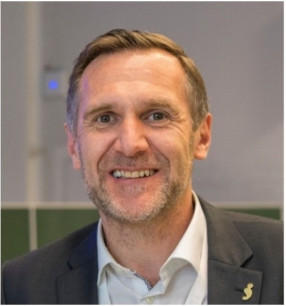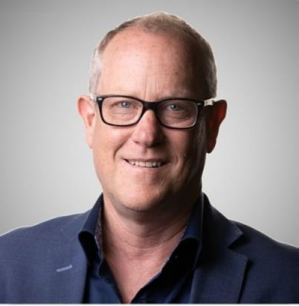Academy Executive Committee Elections
Positions on the Academy Executive Committee can come up for election each year.
Domain Convenor for Health and Medical Sciences
Nominations for the Convenor Health and Medical Sciences for a 3-year term commencing 1 July 2024 are:
Professor Stephen Robertson FRSNZ
Nominated by: Professor Mark Richards FRSNZ & Professor Cliff Abraham FRSNZ

Professor Robertson is a clinician-scientist and an international authority on the clinical and molecular genetics of life-limiting malformations and neurocognitive disorders. He has discovered the cause of >30 disorders, enhancing the clinical care of people with such conditions globally. He has been consistently committed to developing accurate diagnostic genomics for Maori and is currently scientifically co-leading the assembly of a national resource to enhance genomic medicine for tangata whenua. He is involved in the leadership of multiple national and international research consortia. He is a clinician, translating his research findings into practice focusing on equity and access to care. He has established a research lab of international standing, funded by Curekids (who endoed his Chair in 2002), the HRC (7 project grants) and the Marsden fund 5 grants). He is on the editorial boards of five international journals, has won prestigious awards (e.g. HRC's Liley Medal, 2010; Deans Medal for Research Excellence, 2018), and was Associate Dean (Research), Dunedin School of Medicine from 2014-2019.
Professor Rachel Waring Taylor FRSNZ
Nominated by: Professor Sir Jim Mann CNZM FRSNZ & Professor Rosalind Gibson FRSNZ

Candidate statement:
Rachael has a personal Chair in Early Childhood Obesity (funded through the University of Otago Leading Thinkers Initiative) and is Director of the Edgar Diabetes and Obesity Research Centre and Head of the Department of Medicine, one of the largest departments in the University of Otago.
Her initial training was in Nutrition but she now has wide-ranging research interests relating to lifestyle and environmental determinants of health across the lifecycle, but particularly in the early years of life and has an international reputation in the field of childhood obesity. Her 240 publications, most in high impact peer reviewed journals, Google Scholar h-index of 67, success at attracting research funding (multiple HRC programme and project grants and grants from Marsden, Lotteries Health and MPI as Principal Investigator or co-PI, over $31M) and large multidisciplinary research group which includes 12 current PhD students provide evidence of her successful research career.
Her distinction in research as well as her various professional activities provide a perspective which is highly relevant to the role of Health and Medical Sciences Domain Convenor. As a biomedical researcher whose work has considerable public health application, she has a perspective which covers a broad range of disciplines within the Domain. As Head of a large clinically based University department, she is in the almost unique position for someone who is not medically trained in that she has been able to acquire an understanding of clinically based research and some of the issues involved for clinicians wishing to combine clinical and research careers. This breadth of knowledge and expertise across a broad spectrum of health and medical expertise has been further enhanced by her appointment as the National Contact Point (NCP) for Cluster 1: Health for Horizon Europe in New Zealand which involves facilitating Health related research collaborations between New Zealanders and international groups of researchers.
Rachael also has considerable experience in relevant governance and advisory roles and exceptional communication skills in the lay and professional context. She serves on, or chairs, several local, national and international committees and groups and would unquestionably serve the Royal Society well in all components of the role of Convenor for Health and Medical Science
Domain Convenor for the Physical, Earth and Mathematical Sciences
Nominations for the Convenor Physical, Earth and Mathematical Sciences for a 3-year term commencing 1 July 2024 are:
Professor Christian Hartinger FRSNZ
Nominated by: Distinguished Professor Marston Conder ONZM FRSNZ & Professor Geoff Jameson FRSNZ

Candidate statement:
We would like to nominate Prof. Christian Hartinger as the Convenor for the Physical, Earth and Mathematical Sciences Domain of the Royal Society Te Apārangi. Christian is an eminent scientist leading an interdisciplinary research programme at the interface of chemistry, biology and medicine. His scientific background therefore covers a range of subjects and will allow him to contribute his expertise to the work of the Academy. He has published about 250 papers in a wide variety of areas, supported by a strong network of collaborations in chemistry, biology, medicine and computer sciences, and thus confirms an ability to look beyond his own research discipline.
Christian has held a variety of leadership roles within the university and beyond, experiences which will serve him well as the Convenor for the Physical, Earth and Mathematical Sciences Domain of the RSNZ. He was elected by his peers first to the council and later to secretary of the Society of Biological Inorganic Chemistry (SBIC), the biggest international society in bioinorganic chemistry. He was Deputy Head of School(Research) and interim Associate Dean for Research (2019); in these roles he championed research excellence, fostered a collaborative and collegial environment, and upheld important values of inclusivity, equity and integrity. He has held (associate) editor roles and serves on editorial advisory boards of leading international journals. Among other roles, Christian has been a long-term member of the University of Auckland Staffing Committee and faculty staffing committees, both of which play key roles for appointing academics and promotion.
Christian is the recipient of many national and international awards including most recently the Royal Australian Chemical Institute Inorganic Division Burrows Award and the ISBOMC Bioorganometallic Chemistry Award. He is a highly regarded mentor by early career researchers and his PhD students and postdoctoral fellows and he has nominated colleagues and students for awards. As an experienced researcher, he has served on a variety of assessment panels to select award winners such as for the Asian Biological Inorganic Chemistry (AsBIC) Awards and SBIC Early Career Awards.
Christian has an outgoing personality. He is a member of different societies national and international. He has appeared on TV and radio, has given public lectures locally and overseas, and has used outreach activities to reach children to engage with the sciences. He would make an excellent ambassador for the Royal Society.
Christian will not only make an excellent ambassador for the Royal Society, but his wide expertise will serve him well as on the various Society’s Election and Medal selection panels.
Professor Tim Naish NZAM FRSNZ
Nominated by: Professor Peter Barrett NZAM FRSNZ & Professor Graeme Wake FRSNZ

Tim Naish is Professor of Earth Sciences and ex-Director of the Antarctic Research Centre (2008-2017) at Te Herenga Waka, Victoria University of Wellington.
Tim’s 35 years research experience have provided fundamental breakthroughs on the causes and consequences of past natural global sea-level change that have allowed the human fingerprint of current and future sea-level change to be identified. He has provided a strategic focus on policy-relevant climate research at national and international level, bringing a much-needed ability for society to address the key questions on this existential issue.
Tim and his team have published in the world’s leading journals, helping underpin the importance of the global warming limit of a 1.5-2°C increase set by the 2015 Paris climate agreement. Tim’s team has also transformed the ability of local governments, planners, infrastructure providers and communities in Aotearoa-NZ to anticipate and adapt to the impacts of sea-level rise. Tim is also a committed communicator on Antarctic and climate science issues, such as the consequences and impacts globally and for New Zealand.
Tim was Lead Author on the Intergovernmental Panel on Climate Change (IPCC) 5th Assessment Report (2013). He serves on a number of international science organizing and governmental advisory committees, including membership of the Joint Scientific Committee that leads the World Climate Research Programme (WCRP). Through this role he is trying to better link climate science enterprise with the urgent needs of users and practitioners, such as lifting adaptative capacity in vulnerable communities, avoiding maladaptation, better understanding of the implications of climate interventions, and the evaluation of mitigation pathways.
Tim co-leads the Scientific Committee on Antarctic Research’s (SCAR) flagship research programme on how Antarctic ice melt contributes to sea-level rise. He also co-leads the NZ Government (MBIE) - Funded “Our Changing Coast Programme”, which is providing location-specific estimates for assessing sea-level rise-related risks and adaptation options around the NZ coastline. All of this work requires an appreciation of quantitative system modelling.
Tim’s “Melting Ice & Rising Seas Team” won the 2019 New Zealand Prime Ministers Science Prize. He was awarded a Royal Society of New Zealand James Cook Fellowship in 2017. Tim has also received the Tinker Muse Prize for Antarctic Science and Policy ($US100,000) in 2014, and in 2010 the New Zealand Antarctic Medal. He was elected a Fellow of the Royal Society of New Zealand in 2014.
Tim is at a stage in his career where he would like to serve New Zealand’s research community in a capacity where his knowledge, experience and networks could contribute to lifting the excellence and relevance of Aotearoa-New Zealand’s research. He has a history of working well in an interdisciplinary team and is well placed to lead a team such as the Physical, Earth Sciences and Mathematics Domain Academy Executive Committee of the Royal Society Te Apārangi.
